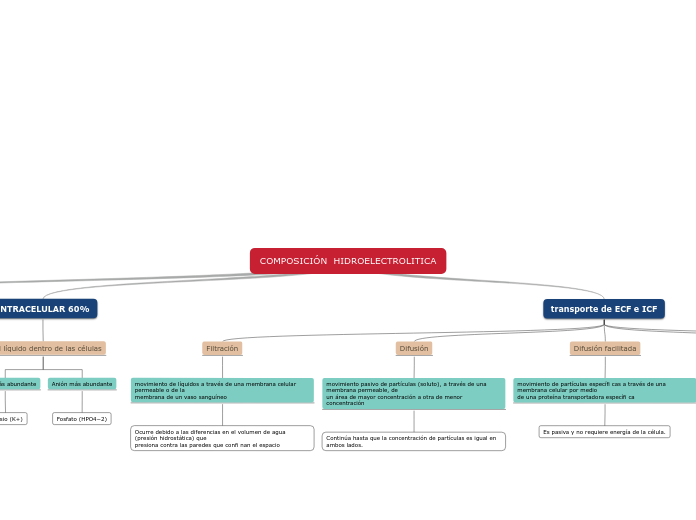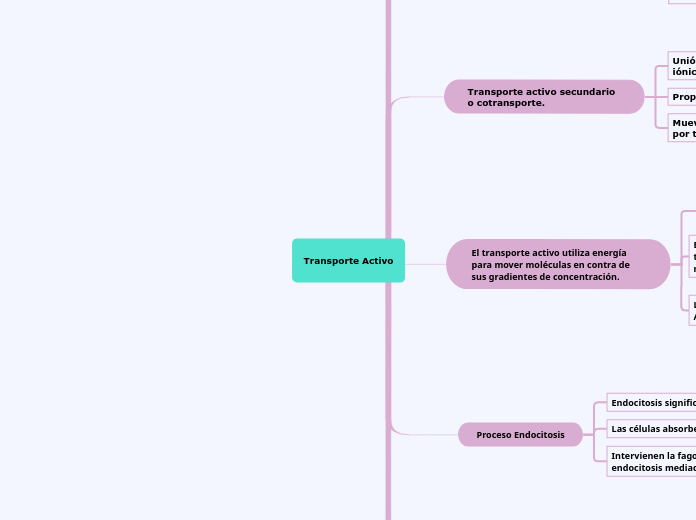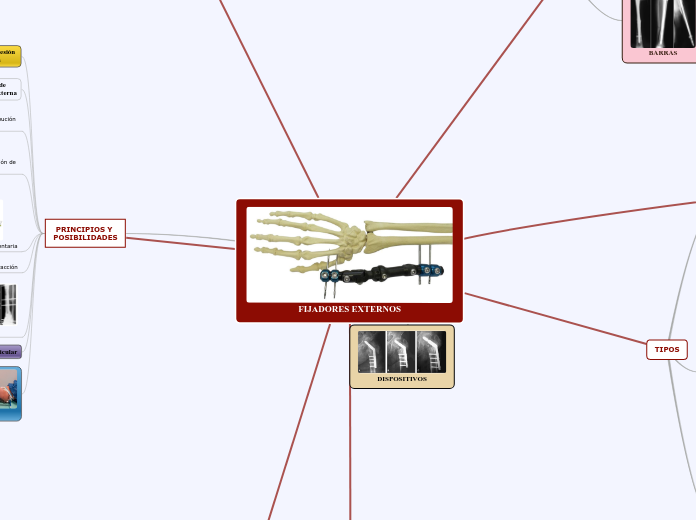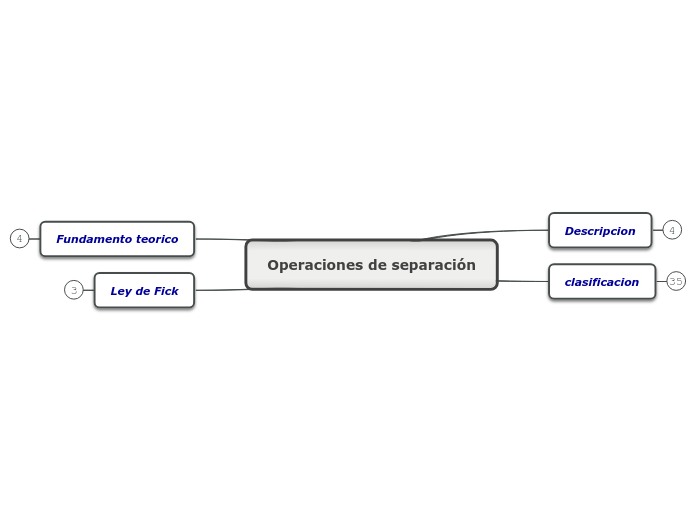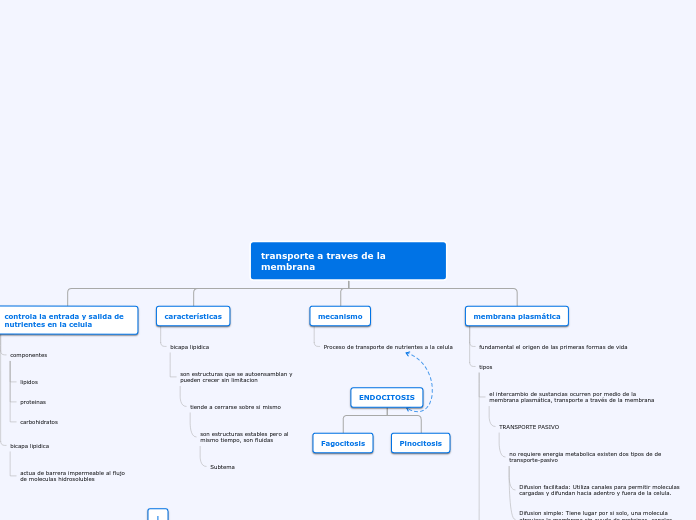COMPOSICIÓN HIDROELECTROLITICA
Type in the name of the multiple-perspectives text.
Example: Bridge to Terabithia by Katherine Paterson
transporte de ECF e ICF
Transporte activo
movimiento de partículas a través de una membrana celular, de áreas de menor
a otras áreas de mayor concentración, combinándose con un transportador fuera de
la membrana celular y moviéndose hacia el interior de la célula
Una vez dentro de la célula, la partícula y este transportador se separan, y la partícula
queda libre dentro de la célula
Ósmosis
desplazamiento de las moléculas de agua por una membrana semipermeable a
través de un gradiente de concentración
El agua se desplaza de áreas con una concentración más baja de partículas (hipotónica) a otras con una concentración más alta (hipertónica), hasta que la concentración
es la misma en ambos lados de la membrana.
Difusión facilitada
Whose character does the third point of view belong to?
Type in his/her name.
Example: Mr. Aarons, Jesse's father.
movimiento de partículas específi cas a través de una membrana celular por medio
de una proteína transportadora específi ca
What does the character think, say or do that suggests their perspective on the issue?
Type in a quote and try to maintain the citation format.
Example: 'He would like to show his drawings to his dad, but he didn't dare. (...) He'd thought his dad would be pleased. He wasn't. What are they teaching in that damn school? he had asked.' (Paterson, 2.8)
Es pasiva y no requiere energía de la célula.
What kind of narration introduces the viewpoint?
Choose an answer:
First person point of view - using the personal pronouns 'I' or 'we'Second person point of view - using the personal pronoun 'you'Third person point of view - using the third-person pronouns 'he', 'she' and 'they'Omniscient point of view - an all-seeing observer tells the story
Difusión
Decide on the second point of view
Name the character (it can either be the main character or one of the supporting characters) whose point of view you are presenting.
Example: Miss Edmunds, Jesse's music teacher.
movimiento pasivo de partículas (soluto), a través de una membrana permeable, de
un área de mayor concentración a otra de menor concentración
Type in a quote that points out the character's position about the issue.
Try to follow a citation format: author's name, chapter, and page.
Example: 'She said he was unusually talented, and she hoped he wouldn't let anything discourage him.' (Paterson, 2. 8)
Continúa hasta que la concentración de partículas es igual en ambos lados.
How is the viewpoint introduced in the story?
Choose an answer:
First person point of viewSecond person point of viewThird person point of viewOmniscient point of view
Filtración
movimiento de líquidos a través de una membrana celular permeable o de la
membrana de un vaso sanguíneo
Type in a relevant quote that highlights the character's point of view towards
transporte de ECF e ICF.
Try following a citation format: author's name, chapter, and page.
Example: 'Jesse drew the way some people drank whiskey. (...) Lord, he loved to draw. (...) When he was in first grade, he told his father that he wanted to be an artist when he grew up.' (Paterson, 2. 7)
Ocurre debido a las diferencias en el volumen de agua (presión hidrostática) que
presiona contra las paredes que confi nan el espacio
INTRACELULAR 60%
Es el líquido dentro de las células
Decide on the fourth point of view
Type in the name of the last character whose perspective on the issue you are going to present.
Example: Leslie Burke, Jesse's new next-door neighbor, and best friend.
Anión más abundante
Fosfato (HPO4−2)
Catión más abundante
Point of view
Type in a relevant quote that highlights the character's point of view. Try to follow a citation format: author's name, chapter, and page.
Example: I can't get the poetry of the trees,' he said. She nodded. Don't worry,' she said. You will someday. He believed her.' (Paterson, 4. 24)
Potasio (K+)
How is the viewpoint introduced in the story?
Choose an answer:
First person point of view - using the personal pronouns 'I' or 'we'Second person point of view - using the personal pronoun 'you'Third person point of view - using the third-person pronouns 'he', 'she' and 'they'Omniscient point of view - an all-seeing observer tells the story
EXTRACELULAR 40%
Identify an important issue from the text that is being presented from different angles. Type it in.
Example: Jesse's drawing talent.
Es el líquido fuera de las células
Decide on the first point of view you are going to present.
Type in the name of the character (it can either be the main character or one of the supporting characters) whose point of view belongs to.
Example: Jesse Oliver Aarons, Jr., the main character of the novel, a fifth-grader living in a rural Southern area.
Líquido intersticial
entre las células; el “tercer espacio”
Líquido transcelular
en espacios especiales del cuerpo, como los líquidos cerebroespinal, peritoneal, pleural y sinovial
What type of narration introduces the viewpoint?
Choose an answer:
First person point of view - using the personal pronouns 'I' or 'we'Second person point of view - using the personal pronoun 'you'Third person point of view - using the third-person pronouns 'he', 'she' and 'they'Omniscient point of view - an all-seeing observer tells the story
Plasma
Type in a relevant quote that highlights the character's point of view towards
EXTRACELULAR 40%.
Try following a citation format: author's name, chapter, and page.
Example: 'Jesse drew the way some people drank whiskey. (...) Lord, he loved to draw. (...) When he was in first grade, he told his father that he wanted to be an artist when he grew up.' (Paterson, 2. 7)
